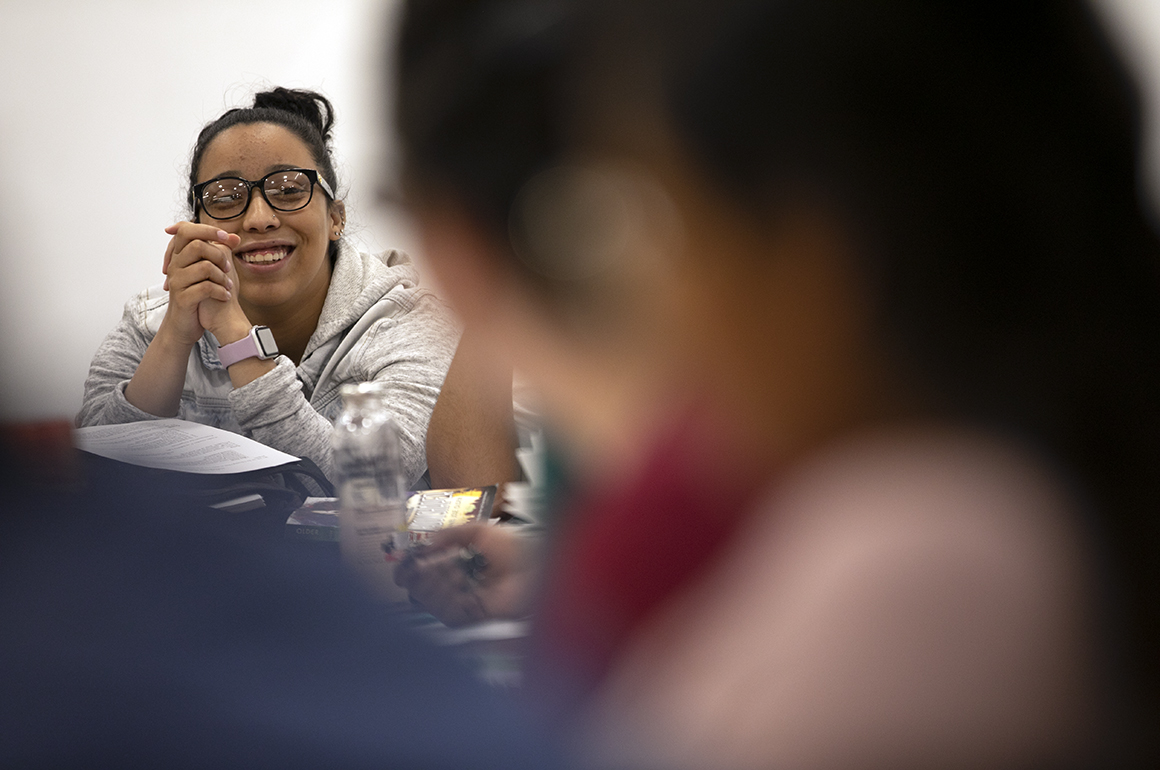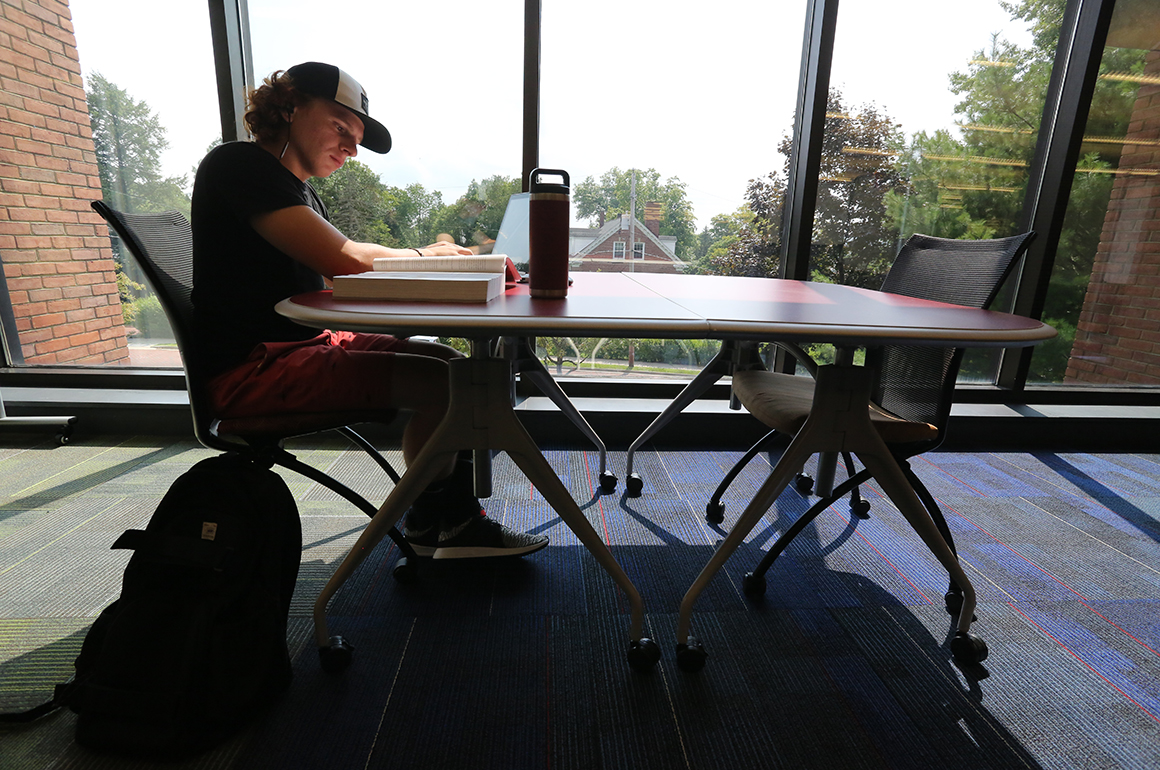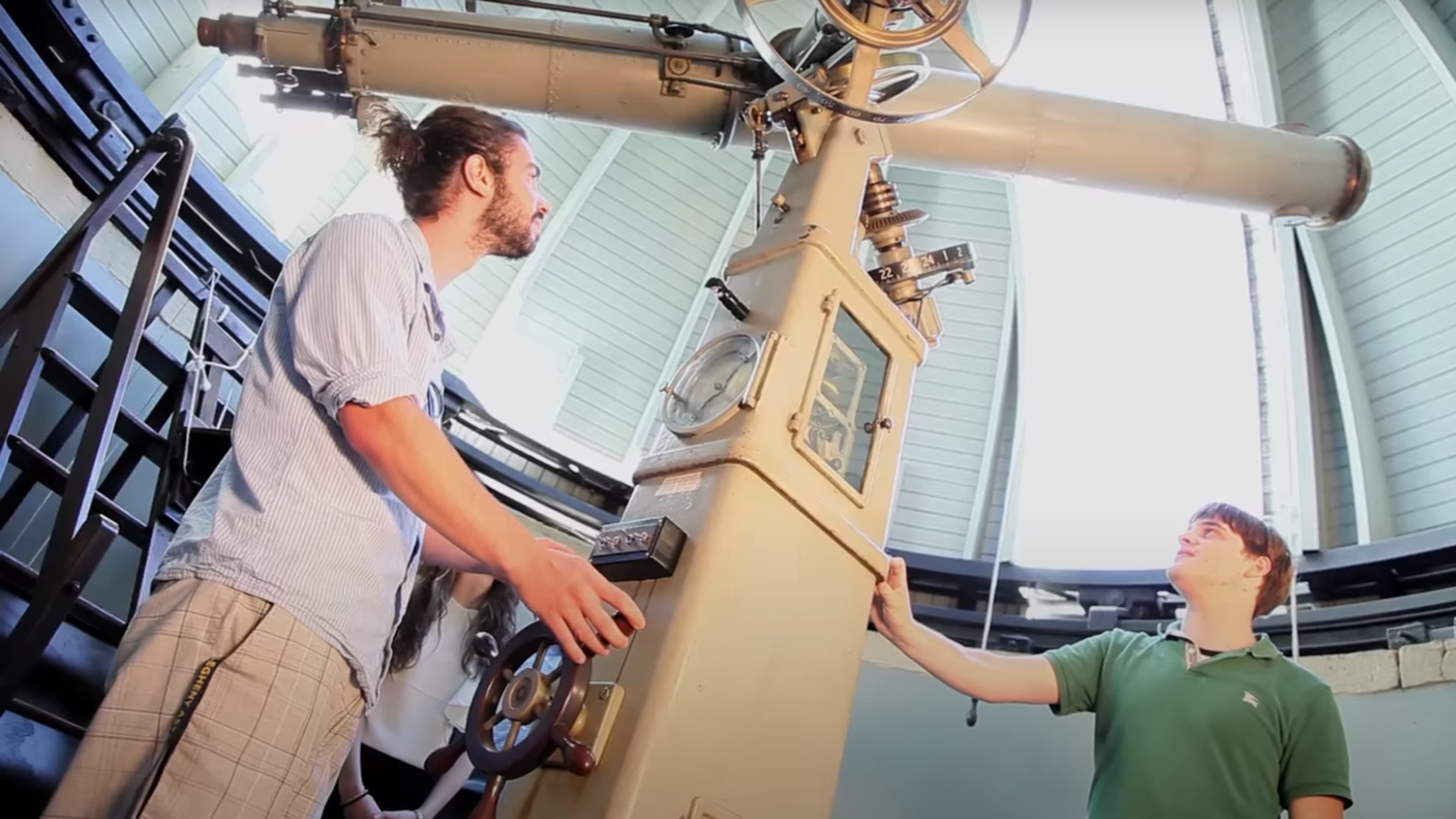Values and Society
Religion in American Life Minor
Explore religious rituals, practices, and systems of thought. Religious Studies helps us see the continually evolving relationship of individuals and communities within those traditions as well as the role of religion in a complex global context.

Your Four-Year Journey
Students often combine a minor in Religious Studies with a major in English, International Studies, Political Science, or Psychology.
The study of religion intersects with many fields using various approaches while providing additional meaning to symbols, practices, and rhetoric that enrich the work of other related disciplines. The foundation course in Religious Studies is Religion in American Life. We also offer introductory courses in Judaism, Christianity, Islam, Buddhism, and other Asian Religions.

Many courses are organized as seminar discussions, so a great deal of student contribution is expected. Take Christian Ethics. History of American Christianities, Jewish Meadville, Jewish Ethics, Marriage and Sexuality in Islam or any number of other courses to gain a broader vision of religion.

Take contemporary religious courses to learn about the distinctions in culture and values. Related classes include Christian Ethics; Jewish Ethics; Religion and Ecology; Marriage and Sexuality in Islam; and Islam in America.

The focus of the fourth year is the Senior Comp, where you will investigate and write a personalized thesis. Your thesis will incorporate your unique major and minor combination— in this case, it's with Religious Studies!

CAREER OUTCOMES
93
of Allegheny graduates are employed, in grad school, or in full-time service within six months.
80+
Acceptance rate to graduate and professional school for Allegheny students
Class of 2018
“ Allegheny offers some of the most dedicated faculty I have ever had the honor to work with. My professors worked constantly to make sure I was on track and gave me the guidance and tools to present my research at a conference. ”









